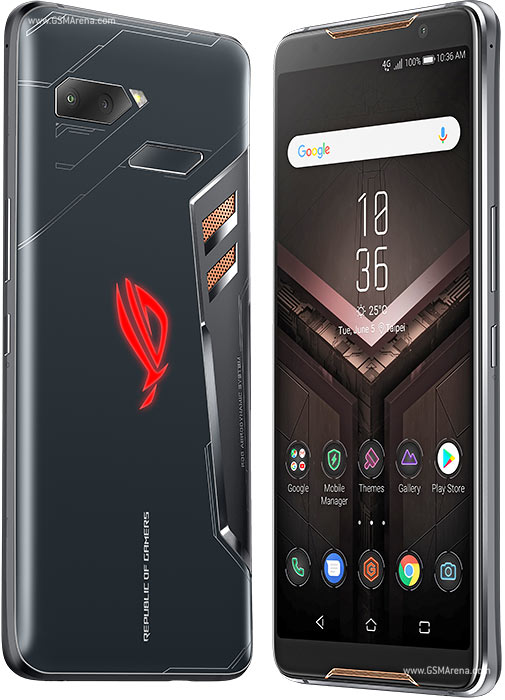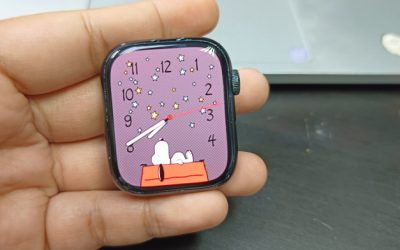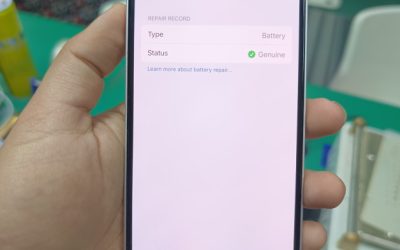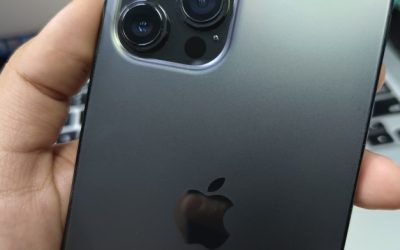Asus ROG Phone – Specifications
Design
The ROG Phone’s design is definitely polarizing. Made from a mix of glass and metal, the mobile device is leaning into the whole “gamer phone” look. A pair of copper accents breaks up the monotony of the black top and bottom bezels. A status light and the 8-megapixel camera sit at the top on either side of the showy accoutrement.

Display
Big, beautiful color. That’s what Asus is serving up with a massive 6-inch, AMOLED display that’s both vivacious and, thanks to its 2160 x 1080 resolution, sharp. Thankfully, since the display is made of Corning Gorilla glass, it’s as durable as it is pretty. The ROG is also the first phone to use Corning’s 2.5D curved-edge glass, which the company claims can survive a drop from 3.3 feet. Those bursts of color are due in part to the ROG screen’s capability to reproduce 233.6 percent of the sRGB gamut.

Audio
With its default audio settings, the ROG and its pair of NXP 9874 amplifiers easily filled our test lab. And if you need a further volume boost, you can switch to Outdoor mode. However, you’ll lose a lot of detail due to the purposeful diffusion.
Camera
Outfitted with a pair of Sony IMX363 sensors, the ROG Phone’s dual rear-mounted 12MP cameras captured images that are both über-vivid and detailed.

Performance
The ROG Phone isn’t the first to use a Qualcomm Snapdragon 845 processor with 8GB of RAM. But it’s definitely one of the first to use a speed-binned CPU. Speed-binning is the process of testing identical parts to reach a certain standard. In this case, the threshold is that four of the 845’s eight Kryo performance cores can run at a clock speed of 2.96-GHz simultaneously, which is notably higher than the standard 2.8-GHz. In other words, either Asus or Qualcomm tested the chips to make sure they could run and maintain overclocked speeds.
The ROG Phone might be one of the most powerful smartphones outfitted with an 845 CPU. We ran Geekbench 4 to measure overall performance, and the ROG Phone scored 9,224. The ROG also held its own during real-world tests, taking 3 minutes and 31 seconds to transcode a 4K video to 1080p.
Cooling
Well, they’re a part of Asus’ GameCool system. If you could open up the phone, you’d find a 3D vapor chamber along with a couple of heat spreaders and cooling pads — all so that the overclocked processor doesn’t overheat causing the phone’s performance to take a hit.
And if GameCool doesn’t work, you can always attach the AeroActive cooler, which comes bundled with the ROG Phone. Once attached to the middle of the rear panel, a quick notification flashes, letting you know that the newly attached fans might interfere with the audio quality. After clicking Okay, the fans gently whir to life. If you were worried about the accessory covering all that glowing LED goodness, you can lay those fears to rest, as Asus made sure to outfit the peripheral with its own backlit logo.
Battery Life
The ROG Phone is equipped with a 4,000 mAH battery, which isn’t the largest battery I’ve seen in a phone, but it’s still pretty large. The ROG Phone lasted 8 hours and 59 minutes on the Tom’s Guide battery test, which is comprised of continuous web surfing over 4G LTE at 150 nits of brightness. It’s below the 9:48 smartphone average, but I was still surprised it lasted that long.

Processing Power: 2.96GHz Qualcomm Snapdragon 845 (Speed-binned) and the Qualcomm Adreno 630
Display: 6″ 18:9 (2160 x 1080) OLED panel with a 90Hz refresh rate and 1ms pixel response time. The display also includes HDR support and 108.6% DCI-P3 color gcolourcoverage
Audio: Dual front-facing stereo speakers; 24-bit/192kHz DAC; DTS Headphone:X 7.1-channel virtual surround sound; AptX support
Memory: 8GB RAM
Storage: 128GB or 512GB
Connections: 802.11ad Wi-Fi and Bluetooth 5
3.5mm jack: Yes
Battery: 4,000mAh (Fast Charging)
Ok if you really need to know – the price starting RM3,499.







0 Comments